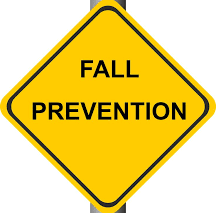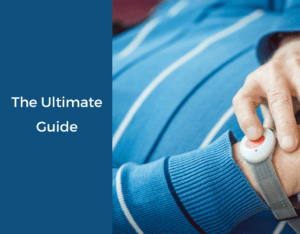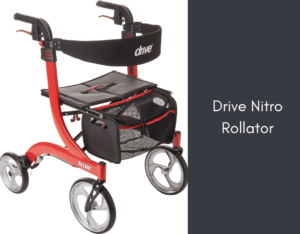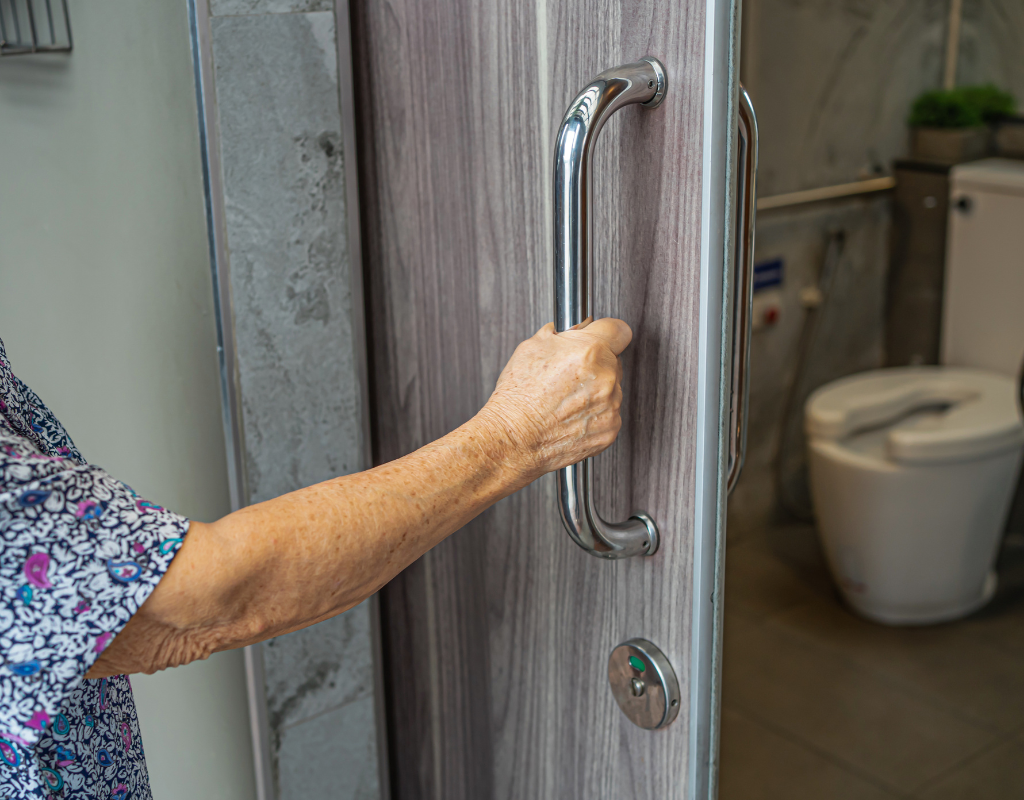More and more older adults are choosing to remain at home and live independently. With this comes concern about their safety. Falls, burns and poisonings are among the most commons accidents involving the elderly. And, there is an increase in crimes targeting older adults ranging from identity theft to online / phone scams.
If you are an older adult living on your own, or care for an older person living alone, here are some home safety tips for you.
Post emergency numbers 
Always keep a list of emergency numbers by each phone. Make the print large enough so that you can read it easily if you are in a hurry or frightened. Be sure to list numbers for:
- 911
- Poison Control: 1-800-222-1222
- Family member or friend to call in case of emergency
- Healthcare provider’s office
Prevent falls
- Utilize a Fall Prevention Checklist to make sure you prevent falls.
- If you are concerned about falling or are having trouble with your balance, ask your doctor or care provider about a falls risk assessment.
- Ask your doctor or care provider if an exercise program would help you prevent falls.
- If you have fallen in the past, or are worried about falling, look into buying a medical alert system with a bracelet or necklace. Check out my review of MobileHelp Medical Alert System.
- Wear non-slip footwear when walking on slippery floors.
- If you have a cane or a walker, you should ALWAYS use it. Many people I talk with say they feel safe enough in their own homes so they don’t use their walker. Unfortunately the home is where most falls happen.
Safety-proof your home
- Conduct a home safety inspection using a Home Safety Checklist for Seniors.
- Keep your home free of clutter and make sure hallways, stairs and rooms are well-lit and free of objects.
- Use rails and banisters when going up and down the stairs. Never place scatter rugs at the bottom or top of stairs.
- Tape all area rugs to the floor so they do not move when you walk on them. Or, better yet, get rid of them altogether.
Protect against fire and related dangers
- If there is a fire in your home, leave and call 911. Don’t try to put it our yourself. Know where all exits are.
- Avoid loose clothing when you are cooking.
- Get rid of (or replace) any appliance that has a loose or frayed cord.
- Don’t put too many electric cords into one socket or extension cord.
- Make sure you have a smoke detector in every room and change the battery twice a year.
- Never smoke in bed or leave candles burning, even for a short time, in an empty room.
- Make sure heaters are at least 3 feet away from anything that can burn, such as curtains, bedding, or furniture. Turn off space heaters when you leave the room.
Be safe in the bathroom
- Take time to prepare your bathroom for safety.
- Set the thermostat on the water heater no higher than 120° F to prevent scalding.
- Install grab bars in the shower and near the toilet.
- Put rubber mats in the bathtub to prevent slipping.
- If you have trouble getting in and out of the shower or can’t stand for long periods of time, see about getting a shower bench. Your health care provider can usually provide you with one.
- If you have trouble getting on and off the toilet, you should look into getting a raised toilet seat with grab bars.
Prevent poisoning
Carbon Monoxide
- Install carbon monoxide detectors near all bedrooms, and be sure to test and replace the battery two times a year.
Medications
- Store medications in their original containers so you don’t mix up medicines.
- Ask your pharmacist to put large-print labels on your medications to make them easier to read.
- Take your medications in a well-lit room, so you can see the labels.
- Take all of your pill bottles with you to your healthcare provider’s appointments so he or she can look at them and make sure you are taking them correctly.
Protect against abuse
- Keep your windows and doors locked at all times.
- Never let a stranger into your home when you are there alone.
- Talk over offers made by telephone salespeople with a friend or family member.
- Always ask for written information about any offers, prizes, or charities and wait to respond until you have reviewed the information thoroughly.
- Do not let yourself be pressured into making purchases, signing contracts, or making donations. It is never rude to wait and discuss the plans with a family member or friend.
Be Safe
Don’t be a statistic. Take steps now to prevent accidents before the occur. If you have any questions, feel free to leave a note in the comment section below and I’ll be happy to get back to you quickly. Thanks.
Recommended For You

Kitchen Tools for Seniors & Disabled – Must Haves
My mother, Barbara, had progressive MS for most of her adult life. Complications from MS, along with a stroke, left her unable to do many of the normal activities of daily living. Bathing, dressing and eating were some of the things she could not do by herself. Fortunately, she was

What Benefits Does AARP Offer?
What benefits does AARP offer? That’s a question I asked myself for 12 years before I finally decided to join. What took me so long? I don’t know. Denial maybe? …

Senior Fall Alert Systems
My mom laid on the floor with a broken leg for 8 hours until my dad found her the next morning. She was in the kitchen and tried to transfer …

States That Pay Family Caregivers
Nearly 80% of adults living at home and receiving long-term care assistance depend solely on relatives and friends, according to the Family Caregiver Alliance (FCA). The role of informal caregiver …

Does Medicare Cover Home Caregivers
The one question I get asked quite often is does Medicare cover home caregivers? While the simple answer is no, there are some exceptions. In this article I will talk …

How Is The Drive Nitro Rollator Walker?
One question I get asked a lot is how is the Drive Nitro Rollator Walker? It is one of the most popular walkers out there right now. The Drive Nitro …

